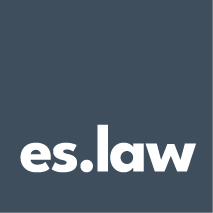Product liability under civil law
In principle, product liability is governed by civil law, in Austria primarily by the Product Liability Act (Produkthaftungsgesetz – PHG). Accordingly, the manufacturer or importer of a defective product is liable if the product defect causes death, bodily injury or damage to health, or if a physical object other than the product is damaged (Sec 1 para 1 PHG).
Liability under the PHG does not require culpable behavior. Liability is only accepted for damage to persons and private property, provided that the damaged item is not the defective product itself. There is a deductible limit of 500 euros for damage to property.
If culpability can be proven, corresponding claims for damages can also be based on general fault-based liability in accordance with the Austrian Civil Code (ABGB).
Criminal liability – prodcut criminal law
In the event of serious consequences such as bodily injury or even death caused by the product, so-called criminal product law can be applied. The idea behind this is not to provide compensation (as in civil law), but to create a need for society to react through criminal sanctions and thus to have a preventive effect on gross breaches of the legal duty of care.
Criminal liability for product defects arises from the link between product-specific obligations and general criminal law standards. The standard for the absence of defects in a product is based on legal requirements which define the criteria that a product must fulfil in order to be lawfully placed on the market.
These include, for example, the provisions of the Product Safety Act (Produktsicherheitsgesetz – PSG), the Medicinal Products Act (Arzneimittelgesetz – AMG), the Medical Devices Act (Medizinproduktegesetz – MPG), the Cosmetics Regulation, the Toy Safety Directive and the EU Product Safety Regulation 2023/988. Both intentional and negligent behavior, for example by violating testing and due diligence obligations, can be relevant under (administrative) criminal law.
Manufacturers and distributors are obliged to ensure the safety of their products and to protect consumers from avoidable dangers. In the event of violations and the resulting personal injury, the criminal offenses of negligent assault (Sec 88 Austrian Criminal Code – StGB) or negligent killing (Sec 80 StGB) can be realized.
In special constellations, criminal liability for fraud (Sec 146 StGB) or usury of things (Sec 155 StGB) may also be considered with regard to a defective product.
EU Product Liability Direction 2023/988
The new EU Product Liability Direction (Regulation 2023/988) came into force throughout the EU on December 13th, 2024. The aim of the EU Product Liability Direction is the uniform and harmonized regulation of product safety law and the adaptation of existing law to the developments of digitalization. The regulation is directly applicable in all EU member states and replaces the previous EU directive and, in parts, the Austrian Product Safety Act (PSG). The latter will only apply if the Regulation does not provide for more specific regulations.
The EU Product Safety Regulation applies to consumer products. Both new and used, repaired or refurbished products – regardless of whether they are sold or given away free of charge – may only be placed on the market if they are deemed to be safe products. The scope of application is to be interpreted particularly broadly.
The EU Product Safety Regulation applies in principle to all consumer products sold or made available on the European market. However, the regulation does not apply to the following products:
- Antiques,
- Means of transportation,
- Animal feed,
- Human and veterinary medicine,
- Food,
- Living plants and animals,
- Aircraft,
- Plant protection products,
- Products that must be repaired or reconditioned before use, if these products have been placed on the market clearly labeled to this effect.
- Animal by-products and derived products.
Also not covered by the scope of the new regulation are trades outside the EU, products requiring repair or refurbishment when explicitly labeled, and products that are not intended for consumers and are unlikely to be used by consumers under reasonably foreseeable conditions.
Risk analysis and assessment
The regulation provides for a mandatory risk analysis and assessment for the products falling within its scope. All products must undergo an assessment to check whether they are safe products. Only in the next step they may be placed on the market.
First of all, the properties and the effect of the product on other products with which it comes into contact when used correctly are assessed. In addition, the presentation, labeling, age restriction for children, warnings and instructions for use are considered and evaluated. The assessment also distinguishes between consumer categories (children, the elderly, etc.) and evaluates the appearance of the product if it can be confused with other products, especially food. In addition, an assessment is also made of possible cyber security risks.
Following such an assessment, the safety of a product is presumed if it complies with the applicable European norms and standards.
Duties
The EU Product Liability Direction contains far-reaching and specific obligations for manufacturers, importers and retailers to provide information on products, packaging and in the online store or mail order catalog. In addition, extensive warnings and safety information must be displayed. Warnings must be included in each individual product offering, which makes implementation particularly challenging in practice.
Product recall and safety warning
The European Product Safety Regulation also contains specific regulations on product recalls. For example, importers, manufacturers and retailers are obliged to issue product recalls or safety warnings under certain circumstances in connection with the risks posed by their products. As a rule, such risks arise retrospectively on the basis of feedback or complaints from consumers.
All identifiable consumers who are actually affected by the product and the associated risks must be informed immediately in writing or directly. To maximize the reach of recalls, notices will also be posted in affected stores and through appropriate channels. The EU is also planning rapid alert systems to inform consumers as soon as possible of any recalls.
Compliance for prevention
Compliance is not only of central importance in white-collar criminal law and corruption criminal law, but also in product criminal law. A well-designed compliance management system helps to significantly reduce criminal law risks by ensuring strict adherence to legal requirements. This includes the introduction and monitoring of quality assurance measures, regular training and workshops for employees and the implementation of effective control mechanisms to identify and avoid potential risks from product defects at an early stage.
In addition, a functioning compliance management system can have a mitigating effect in the event of criminal investigations under corporate criminal law. It shows that the company is actively exercising due diligence and has taken organizational measures to eliminate risks in the best possible way. In this way, compliance not only contributes to legal protection, but also strengthens the trustworthiness and integrity of the company.
Support from a specialized lawyer
As soon as a company is confronted with civil or criminal allegations in connection with product safety or possible violations, a specialized criminal defense lawyer should be consulted. Prompt consultation with an expert is essential to avoid or at least reduce liability and the associated negative consequences.
The role of a criminal defense lawyer includes not only the defense in criminal proceedings, but also strategic advice for the company. This includes analyzing the allegations, securing exculpatory evidence and coordinating internal investigations. In addition, the criminal defense lawyer provides support in communicating with investigating authorities in order to prevent an escalation of the proceedings at an early stage and can often prevent or mitigate criminal consequences through proactive measures. The aim of the criminal defense lawyer is to minimize criminal liability and protect the company’s reputation.
Liability of associations in the course of product criminal law
Criminal conduct by employees or decision-makers of a company as an “association” caused by a product defect can, under certain circumstances, also be attributed to the association in the context of corporate criminal law. Several aspects must be taken into account here:
According to Sec 3 of the Austrian Act on Corporate Criminal Liability (Verbandsverantwortlichkeitsgesetz – VbVG), an association is responsible for a criminal offense if it has been committed for its benefit or if the offense has violated obligations that affect the association. In the context of criminal product law, this can be particularly relevant if duties of notification, due diligence or information have been breached.
In order for an association to be held liable, the offense must have been committed either by a decision-maker or by an employee. The association is responsible for the criminal acts of a decision-maker if the decision-maker has committed the offense unlawfully and culpably, which may apply, for example, in the case of negligent or intentional endangerment of consumers by unsafe products. The provisions of product safety law outlined above must be observed here.
In addition, the association is responsible for criminal offenses committed by employees if the employee commits the criminal offense both objectively and subjectively unlawfully. If an employee commits a criminal offense, there must also be organizational culpability for the criminal act to be attributable to the association. This means that the commission of the offense is made possible or significantly facilitated by the fact that decision-makers have failed to exercise the due and reasonable care required by the circumstances, in particular by failing to take essential technical, organizational or personnel measures to prevent such offenses.
What to do if you are the victim of a product shortage?
Anyone who has been harmed by a product defect should primarily secure evidence such as photos, invoices and, if possible, the defective product itself, as well as documenting any damage caused. Legal advice helps to examine civil law claims for damages and compensation for pain and suffering as well as possible criminal proceedings.
In addition, a criminal complaint can be filed with the police or public prosecutor’s office. In addition, private participation in the course of criminal proceedings enables active participation and the chance of an uncomplicated assertion of civil law claims such as claims for damages. Support from a specialist lawyer or criminal defense lawyer significantly increases the chances of success.




